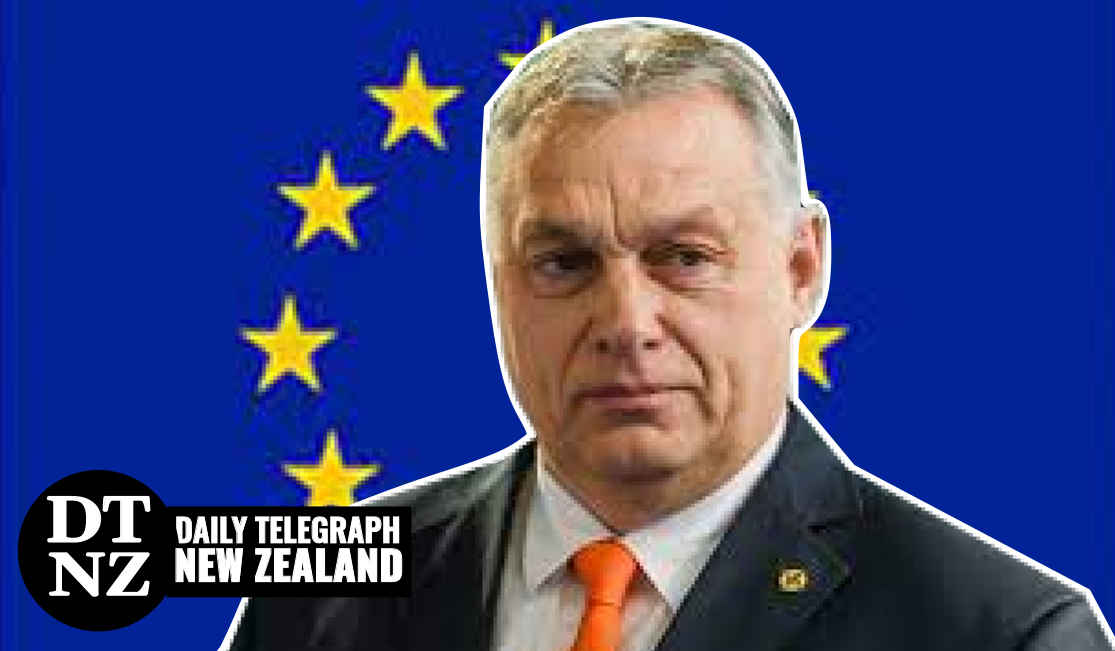As Western hegemony comes to an end, the bloc may eventually be forced to redefine itself as the western peninsula of Greater Eurasia.
The meeting of the Shanghai Cooperation Organisation (SCO) in Uzbekistan has prompted a geo-economic earthquake, as Eurasian giants such as China, India, Russia, Pakistan and Iran are integrating their economies to new levels.
Meanwhile, Turkey wants to be the first NATO country to join the group.
The aftershocks of the meeting are also being felt in Europe. More specifically, as I sit here at the Budapest Economic Forum, organised by the Central Bank of Hungary, I can feel the Samarkand Spirit of the SCO, as a Eurasian future is being charted.
The collapse of the international economic system
Liberal international economic systems tend to form when there is a concentration of economic power under a strong leader. With an immense concentration of fiscal heft, the collective West was able to act as a “benign hegemon” that could deliver public goods and create trust in a stable international economic order. This was the European Union that Hungary integrated into in the 1990s when the US was the sole superpower and the EU was considered a locomotive for economic and social prosperity across the continent.
However, three decades later the world is a very different place. The EU’s relative share of the global economy continues its steady decline as industrial competitiveness deteriorates, debt reaches unsustainable heights, and the future of the euro looks grim. In the US, the economic picture and issues with political stability also give cause for concern.
Brussels is also incapable of facilitating wider cooperation. The bloc was never able to accommodate Russia, the largest state on the continent, causing a revival of Cold War dynamics. The British demand for preserving the political sovereignty of national parliaments could not be accommodated, and Britain thus left the EU. It now appears there is also no room in the European tent for the conservative aspirations of Hungary and Poland. As the bloc threatens to suspend billions in funds to Hungary, it becomes more difficult to preserve political independence.
When an economic hegemon is in relative decline, the international economic system begins to fragment. To defend their position in the international system, the US and EU use economic coercion against both allies and adversaries. The West disrupts the supply chains of rival powers such as China and Russia to prevent their rise, while friends and allies such as India, Turkey and Hungary are also punished for failing to display geoeconomic loyalty. Subsequently, the unipolar era is over. The West is no longer capable of acting as a benign hegemon by providing public goods or administrating an international economic system based on trust.
Eurasia rising
The international economic system is fragmenting as economic dependencies formed over the past decades are weaponised. A multitude of problems ranging from disruptive technologies, war and environmental degradation threaten the world, yet the necessary cooperation is faltering. It is evident that the unipolar order is already over, and a multipolar order is emerging in its place to revive economic connectivity and restore stability.
This is facilitated by the Greater Eurasian partnership, which entails the development of a new multipolar geoeconomic ecosystem. The countries on the Eurasian super-continent are developing connectivity between their technological hubs and financial hubs, while connecting physically with huge infrastructure projects to form new transportation corridors.
Budapest’s objective is to become a key node in the new Eurasian geoeconomic ecosystem and to revive economic connectivity in a multipolar format. Hungary was the first country in Central and Eastern Europe to sign a currency swap agreement with China, and the first in Europe to join China’s trillion-dollar Belt and Road infrastructure initiative. Not only is Budapest connecting itself closer to the growth engine of Asia, but it is also setting itself up as a bridge between the East and West.
Hungary is also resisting further sanctions on Russia to maintain access to energy resources. Simply put, Eurasia is reviving globalisation.
A conservative path
Hungary’s Eurasian path is also consistent with its conservative aspirations. After decades of communism and the development of Marxist Man, Hungary naturally seeks to restore the role of national culture, the Church and traditional values in its national consciousness.
As new technologies and rampant market forces cause disruptions, it is necessary to balance change with continuity. Conservatism therefore anchors stability in the eternal as the focus on family, faith and traditions connect the past with the future, to prepare society for disruptions.
Yet, liberalism in the collective West is not especially tolerant of conservative values. While the liberal nation-state was previously a vehicle for success, liberalism has begun decoupling itself from the nation-state over the past years. Liberal Man is rapidly liberating himself from his own past through multiculturalism, radical secularism, a departure from recognising the family as the main institution of a stable society, and an aversion to traditional values.
In contrast, cooperation in a multipolar Eurasia does not entail exporting a political system or conformity around “values”. The various civilisations in the Eurasian house pursue economic and cultural connectivity, whilst preserving their respective cultural distinctiveness. As a conservative country, it paradoxically becomes easier for Hungary to preserve its European distinctiveness in the multipolar Eurasian format.
Hopefully, Hungary will show the way for the rest of Europe in terms of transitioning from the confrontational unipolar order to a cooperative multipolar format – as the western peninsula of Greater Eurasia.


Words such as “liberal”, “democracy”. “progressive” are just abused. Eurocrats are unelected dictators who order other governments, impose their will on people with no accountability. Sooner EU goes in the drain, the better for Europeans.
I agree.
I’m getting measles from their corrupt lies and the stupidly violent rule they corruptly implement according to the satanic dictates of the globalists.
Its the J***.
Read John Perkins, Confessions of an Economic Hitman, available on pdfdrive.com as a file…. All these corrupt groups must be dissolved…. the old rulers must go. The sooner the EU dies, the better for all. Nato must die, the World Bank, owned by the US, must die along with all the other globalist organisations seeking to destroy and control us…. also see Zeitgiest, the movie on you tube still. John Perkins is there somewhat further on into the video. People seeing this will start to see the level of corruption we are trying to get rid of. The power structures that have been wrecking havoc on a debt controlled economic system are exposed here. Edgar Cayce, yes, he was a “psychic” back in the early 20th century, predicted…. “the hope of the world comes out of RUSSIA” not communism but FREEDOM…. I think he was correct and is alluding to the tearing down of the current economic controllers of this planet….they are being divided and are going to fall apart…. just like they have been trying to do to us….